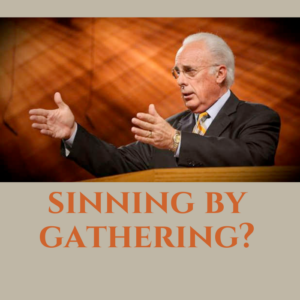 Michelle and Amy discuss some “pet peeves” in evangelicalism – things Christians, churches, and ministries do that can irritate. Little things. Maybe funny things. Maybe not so funny, big things. And not just because they’re irritating, but because they’re unbiblical, unwise, or they’re a hindrance to others in their walk with the Lord.
Michelle and Amy discuss some “pet peeves” in evangelicalism – things Christians, churches, and ministries do that can irritate. Little things. Maybe funny things. Maybe not so funny, big things. And not just because they’re irritating, but because they’re unbiblical, unwise, or they’re a hindrance to others in their walk with the Lord.
Resources:
Churchmanship 101: Training Your Child to Behave in Church– Michelle Lesley- Discipleship for Christian Women
Yes Sir! That’s My Baby!– Michelle Lesley- Discipleship for Christian Women
10 Pet Peeves (with Providential Purpose!)– Michelle Lesley- Discipleship for Christian Women
Watch Your Language! 10 Christian Terms that Need to be Cleaned Up– Michelle Lesley- Discipleship for Christian Women
Let’s stop supersizing “our dreams” – Berean Research
Thank you, bless you and Walk Worthy!





